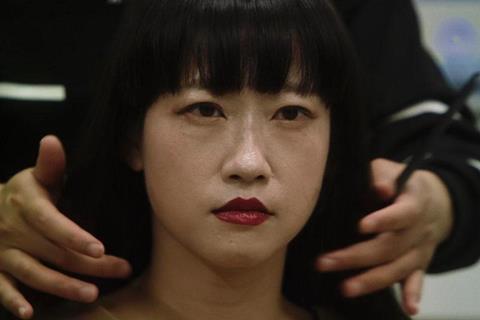A ‘mistress dispeller’ seeks to break up an extramarital affair in this intimate Chinese documentary

Dir. Elizabeth Lo. China/US. 2024. 94 mins
Times have changed in China in more ways than one: the rate of marital infidelity is now as high as that of developed countries. Indeed, the 2020 Chinese Private Life Survey found that 26% of married Chinese (35% of married men and 23% of married women) had cheated on their spouse. Unfaithful behaviour is a significant factor in China’s rising divorce rate, but wives who are intent on saving their unions are turning to ’mistress dispellers’ – a relatively new service whereby a relationship specialist goes undercover for several months to break up the husband’s affair. Elizabeth Lo’s sensitively handled documentary follows one particular case to illustrate the difficulties associated with love in an accelerated China.
A delicately realised examination of marriage in modern China
Mistress Dispeller receives its world premiere in Venice’s Orizzonti and is set to make its North American bow at Toronto with further festival engagements likely to follow. It’s produced by Maggie Li whose credits include Ascension (2022), Jessica Kingdon’s symphonic examination of contemporary China’s social-economic hierarchy which was acquired by MTV Documentary Films and landed an Oscar nomination for Best Documentary Feature. Ascension was praised for its visual essay approach, and Mistress Dispeller also uses a specific structure by evoking Rashomon (1950) to understand each side of a love triangle. In doing so, Lo’s patiently observed documentary displays a cinematic quality which enhances its theatrical prospects.
The betrayed wife here is Mrs. Li, who realised that her husband has been having an affair after intercepting an incriminating text message and noticing that Mr. Li has developed a tendency to come home late. Mrs. Li refuses to allow a rival for her husband’s affections to disrupt her comfortable upper-middle-class existence, so recruits Wang Zhenxi, a mistress dispeller who is often referred to as ’Teacher Wang’ as she has a degree in psychology.
To diffuse Mr. Li’s affair, Wang firstly pretends to be a friend of Mrs. Li in order to get to know him and create an opportunity to discuss his wife’s suspicions. Rather than exposing and lecturing the philandering husband, the non-judgmental Wang acts more as a relationship guru by encouraging Mr. Li to reflect on why he is straying and consider what his marriage still means to him. She then poses as a relative of Mr. Li to meet his mistress, Fei Fei, and gradually takes the young woman into her confidence to bring about a harmonious resolution for all concerned.
The narrative structure is highly effective, with the shifting of perspectives in the exploration of the intricate dynamics between wife, husband and mistress often upending preconceptions about the participants. Dexterously assembled by editor Charlotte Munch Bengtsen, the documentary invites the viewer to not only engage with each person’s emotional state, but to see how their frustrations or flawed decision making are symptomatic of a changing nation’s restlessness. Presenting their individual takes on the situation side by side facilitates a commentary on how the intersection of class, capital, and cultural norms exerts an influence on romantic relationships in today’s China.
This becomes explicit when attention turns to Fei Fei, who earns a living as a delivery driver and is perversely content with perpetual unhappiness. However, there is also a universal aspect to Lo’s inquiry, as each individual reflection encourages the viewer to examine their own beliefs regarding fidelity and commitment.
By discreetly embedding her camera in domestic and social spaces, Lo captures unguarded confessions to achieve a genuine intimacy. Her fly-on-the-wall approach is best exemplified by the extended conversation that unfolds between Mr. Li and Wang as the husband haltingly strives to articulate the malaise that has led him to seek spiritual renewal away from the wife he evidently still adores. These intensely private moments are juxtaposed with montages and transitions which use the surface gleam of China’s urban centres to convey a society that prioritises collective progress over personal fulfilment. Soundtrack choices that range from Puccini’s tragic opera ’Madame Butterfly’ to the melancholic indie-electro of French band Odezenne hint at the longing that permeates China in the post-global age.
There are a few drawbacks to Lo’s focus on one case. A lack of context about mistress dispelling as an industry means it isn’t necessarily clear if Wang’s methods and empathic nature (she wants to put Fei Fei on a positive life path rather than vanquish her) are typical of the profession. Furthermore, Wang herself remains a curious figure. Despite her insistence that, “who I am and what I do is of zero importance, I am just a vessel in their lives,” some elaboration on her background and how she rationalises the moral implications of the duplicity involved in her work would be welcome. That said, Mistress Dispeller is a delicately realised examination of marriage in modern China which should prompt wider conversation about the lengths individuals will go to preserve their dearest relationships.
Production Companies: Anonymous Content, Impact Partners
International sales: The Party Film Sales, sales@thepartysales.com
Producer: Emma D Miller, Elizabeth Lo, Maggie Li
Screenplay: Elizabeth Lo, Charlotte Munch Bengtsen
Editing: Charlotte Munch Bengtsen
Cinematography: Elizabeth Lo
Music: Brian McOmber
























